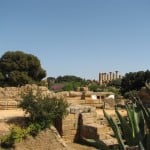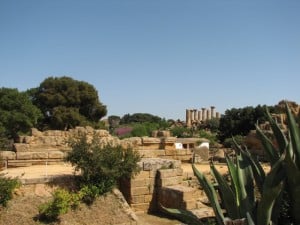 Sharon Preston finds some ancient Greek history in Italy, the magnificent Hellenistic-Romanto Quarter in Agrigento in Sicily
Sharon Preston finds some ancient Greek history in Italy, the magnificent Hellenistic-Romanto Quarter in Agrigento in Sicily
If one really wants to see beautiful, authentic Greek ruins, the best place to see them, believe it or not, is in Sicily. In Agrigento to be exact. The region’s Hellenistic-Romano Quarter is home to some of the very best examples of Greek structures, the remains of a Roman neighborhood built on top of the original Greek urban plan, as well as the area’s excellent archaeological museum.
Let me give you a little bit of background about Agrigento. It was founded as a Greek colony in the 6th Century BC and became one of the leading cities in the Mediterranean world. Today visitors come to see the remains of magnificent Doric temples that existed here in that ancient town, much of which is still lying intact under fields and orchards.
Certain sites have been excavated and these give us an excellent idea of the town that once existed there as well as the burial practices of the early Christians who lived in the town. To find such an intact, well-preserved ancient city is quite a phenomenom and the Doric temples here are some of the most incredible monuments that still exist of Greek culture.
The original Greek town, called Akragas, was founded by people who used to live in Rhodes and Crete around 580BC. The city had a tumultuous past, and finally fell under Roman rule in 262BC. It became part of the Roman Empire in 210BC and for a long time, Agrigento was the only market town on Sicily’s southern coast. But after this Christianity took over, and the city lost most of its inhabitants.
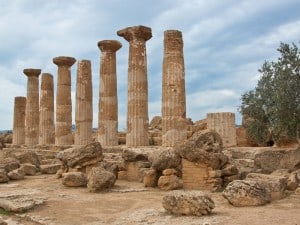 The area is called the Valley of the Temples and it covers most of the central part of the ancient city and its public monuments. The area between the Acropolis and the temples was created in the 5th Century BC and the sacred area was built in the second half of the 6th Century BC.
The area is called the Valley of the Temples and it covers most of the central part of the ancient city and its public monuments. The area between the Acropolis and the temples was created in the 5th Century BC and the sacred area was built in the second half of the 6th Century BC.
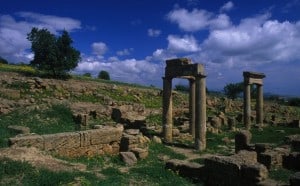 I found the remains of the temples built during the reign of Thero to be most fascinating. These are dedicated to various gods, including Herakles, Zeus and Concord. Very little remains of the Temple of Olympian Zeus, which is sad as it was one of the biggest Greek temples. Also located here is the Temple of Concord, an impressive Doric temple that is very well preserved as it was used as a church in the 6th Century. It was built at the same time as the Temple of Concord. The Temple of Hera Lacinia is also here.
I found the remains of the temples built during the reign of Thero to be most fascinating. These are dedicated to various gods, including Herakles, Zeus and Concord. Very little remains of the Temple of Olympian Zeus, which is sad as it was one of the biggest Greek temples. Also located here is the Temple of Concord, an impressive Doric temple that is very well preserved as it was used as a church in the 6th Century. It was built at the same time as the Temple of Concord. The Temple of Hera Lacinia is also here.
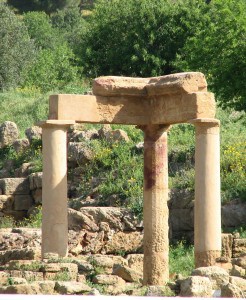 There’s also the Temple of Herakles and a number of other fascinating temples. I also managed to see a some ancient cemeteries including the Tomb of Theron, which was built in early Roman times.
There’s also the Temple of Herakles and a number of other fascinating temples. I also managed to see a some ancient cemeteries including the Tomb of Theron, which was built in early Roman times.

